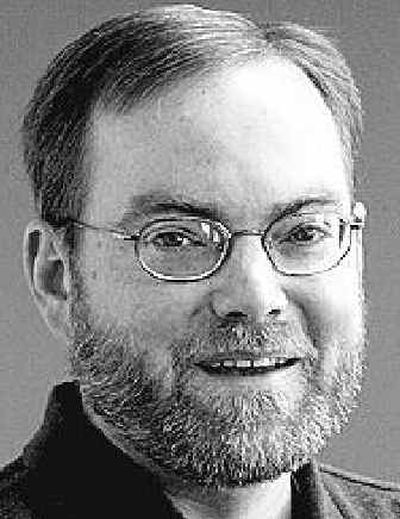Culture disregards sanctity of life

Imagine a world in which one person’s life is worth more than the life of another.
In this world, a life’s value is determined by tangible things – such as intelligence and abilities – and also by intangibles such as potential, quality of life and whether a person is wanted by others.
Obviously, this world is not imaginary. It’s the world you and I now live in.
Decisions of life and death have been wrested from the hands of a sovereign God and handed over to doctors, lawyers, judges, pregnant teenagers and deadbeat fathers.
The results for our culture have been catastrophic.
Millions of innocent babies are murdered in this country every year. A movement to allow euthanasia – a euphemism, along with abortion, for legalized murder – is gaining momentum in some states.
Just this week, the U.S. Supreme Court agreed to hear a federal challenge of Oregon’s physician-assisted suicides that have killed 171 people since 1997.
I often wonder what vast gains for society have been lost because lives have been snuffed out prematurely.
Did we already kill the child who would become the doctor who finds a long-sought cure? Have we “pulled the plug” on a paralyzed accident victim who would have miraculously lived a life of purpose had we waited?
The Bible teaches us that all life originates from a sovereign God who is the only one capable of making right choices about when life begins and ends. If we live by the Scriptures we uphold as truth, then we simply have no right to declare that a “fetus” is not yet a person or that a paralyzed senior citizen would be better off dead.
In Psalm 139, David sings of God’s sovereign hand in the lives of the unborn: “Your eyes saw my substance, being yet unformed. And in Your book they all were written, the days fashioned for me, when as yet there were none of them.” (Psalm 139:16 – NKJV)
Sarah Scantlin and her family know the wisdom in waiting on God’s decisions for human life. As an 18-year-old, Scantlin was struck by a drunken driver as she walked to her car in Hutchinson, Kan. That was 1984.
For 20 years, she remained oblivious to the world around her. She could not move or talk and was rarely and barely conscious.
Then, a few weeks ago, God’s purpose for Scantlin’s life changed. She began talking.
She can tell her parents that she loves them, and she can watch TV. Doctors have no idea why.
But no one seems to debate whether Scantlin’s life is now worth living, even though she remains horribly tormented by the effects of that accident two decades past.
Down in Clearwater, Fla., there is much debate over a life worth living.
Terri Schiavo’s parents and her husband are squaring off in court over whether he should be allowed to have doctors pull her feeding tube. She’ll die in a matter of days without the tube in place.
She’s been paralyzed and severely brain damaged since 1990, when a heart attack cut off the oxygen supply to her brain. Doctors say there is no hope she will ever recover.
Perhaps they haven’t yet heard of Sarah Scantlin.
Schiavo’s husband and her parents insist they are fighting for what is right for Terri, who left no written indication of her wishes before her heart attack.
Keeping her alive is cruel, Terri’s husband argues. But her parents insist their daughter appears to laugh and cry at times and may improve with rehabilitation.
Scantlin’s experience suggests strongly there is reason to hope for one who is hanging on to life by a thread. But the plight of both women points strongly to the folly and frustration of making life-or-death decisions that belong in the hands of our sovereign Creator.
In the name of progress and compassion, our culture has given names like “choice” and “death with dignity” to actions that the Bible has always held out to be sin. This is a time in which Christians must take a stand for the sanctity of human life.
For most of us, that means in day-to-day living we must cling to the truth of God’s word, swim against the current of our culture and live in a way that values all human life.
It’s tragic that so many people already have died at the hands of those who insist on making decisions that are not theirs to make. But the greater tragedy is to realize that decent people often remain quiet as the culture legislates and carries out mass murder.
God’s word to the prophet Jeremiah makes it clear that he has a plan and purpose for every life: “Before I shaped you in the womb, I knew all about you. …” (Jeremiah 1:5 – The Message paraphrase)
Let’s pray that God’s will prevails as our nation’s high court takes on this tough decision. But let us also resolve in our own hearts to value life as he does.
What we believe and how we act upon it really does matter. In fact, it’s a matter of life and death.